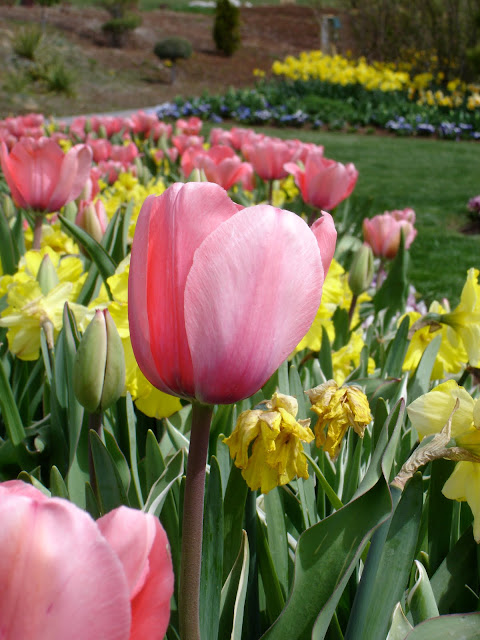After this post on my spacey composter I got a few emails from readers with questions about composting, so I thought I would put together a basic primer on composting to answer some of the questions you may have. So...let's get down to the dirt (sorry I couldn't help myself).
Why is composting important?
Composting reduces the amount of waste that each of us sends to the landfill each year. (read this to find out how I feel about that). The United States EPA estimates that roughly 23% of the 'waste stream' in the U.S. is made up of yard trimmings and food scraps while Canada estimates that 30% of their landfill is organic and compostable.
Composting returns vital nutrients such as nitrogen and carbon back to the soil which are natural fertilizers. It loosens clay soils and helps sandy soil retain water. It improves soil structure, texture and aeration. It makes your soil happy.
Why should I compost?
Homemade compost is cheap. You are using garden waste and food scraps that you would normally put in the garbage. Besides, buying fertilizer in the store is for suckers.
Composting makes you a responsible gardener. Every year we expect our gardens to produce copious amounts of beautiful roses and peonies, tasty tomatoes, crisp lettuce and sugar snap peas, fragrant leeks and herbs. Its time to give something back. Say thank you to your soil.
What can I compost?
Almost any organic material is compostable. The trick is to add both brown materials which are rich in carbon and green materials which are rich in nitrogen. Brown materials include: dried leaves, wood chips, straw. Green materials include: kitchen scraps from fruits, vegetables, egg shells, coffee grounds, tea bags, garden waste such as trimmings, dead headed flowers, lawn trimmings, and weeds. You can even compost paper napkins, shredded newspaper/paper, and pet hair. Some people (crazier than me) have even suggested urine but I (being female) have not quite figured out if I will go that far for good soil.
What doesn’t go in compost?
Meat and dairy products. Weeds that have pervasive root systems. Chemically treated wood products. Diseased plants.
Will my compost pile smell?
Only if you let it. Smelliness is usually a sign that your brown and green ratios are off kilter. Adding more brown than green goodies will give you that nice ‘earth’ smelling compost pile you’ve always wanted. The exact ratio is up for debate, you'll need to use your sniffer to know when it is right or wrong.
Will composting bring out my inner nerd?
I can pretty much guarantee it. Just embrace it and smile smuggly while you harvest your “black gold.”
For more information visit:
U.S. Environmental Protection Agency
U.S. Department of Agriculture, Natural Resources Conservation Service
Happy composting!
{all photos by A Tree Lined Street}
U.S. Environmental Protection Agency
U.S. Department of Agriculture, Natural Resources Conservation Service
Happy composting!
{all photos by A Tree Lined Street}








4 comments:
Very interesting and informative post. In a friendly format! ;-)
xoxo
jane
Your photos are beautiful! We're going to give composting another go this year--last year I used a homemade container (like yours) and only used it for a few months before giving up. But the little soil I did make was awesome!
It's black gold! I love the smell of good soil in the garden. Can't wait for it to warm up so I can play in the dirt! ♥♪
I compost and it is amazing how little trash I have (between that and recycling). Plus it is great for the garden!
Post a Comment